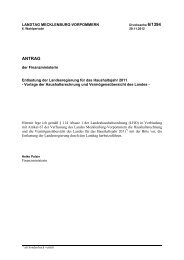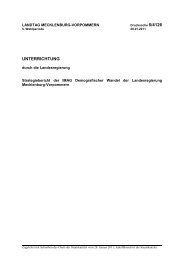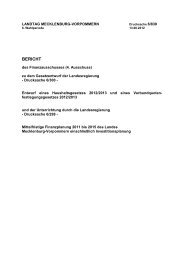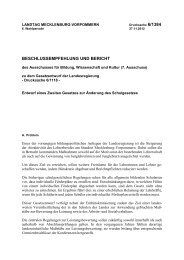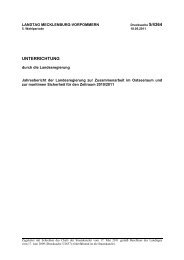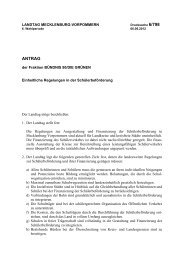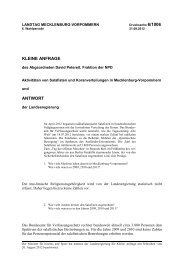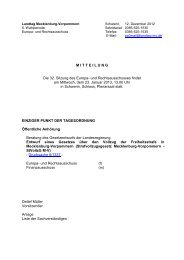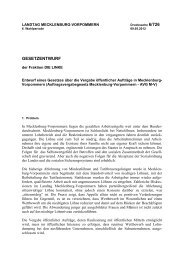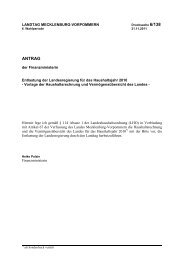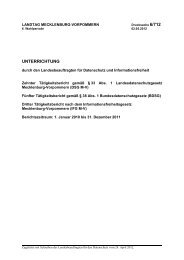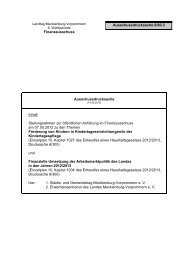Baltic Rim Economies - Baltic Port List
Baltic Rim Economies - Baltic Port List
Baltic Rim Economies - Baltic Port List
You also want an ePaper? Increase the reach of your titles
YUMPU automatically turns print PDFs into web optimized ePapers that Google loves.
Expert article 907 <strong>Baltic</strong> <strong>Rim</strong> <strong>Economies</strong>, 21.12.2011 Quarterly Review 5�2011<br />
Belarus – no economic miracle for free<br />
By Anaïs Marin<br />
Last summer the Belarusian blogosphere circulated an<br />
announcement inviting internet users to the virtual funerals of<br />
the “Belarusian economic miracle”. Recent developments in<br />
Belarus-Russian relations show that the death notice was<br />
premature however: albeit weakened by a year of financial<br />
hardships, Belarus’ unsustainable economy has once again<br />
been rescued.<br />
Isolated by the West since his last controversial re-election<br />
on 19 December 2010, Aliaksandr Lukashenka had but<br />
Moscow to turn to for economic support. In signing a series of<br />
agreements he recently secured the inflow of the Russian<br />
credits and subsidies desperately needed for maintaining the<br />
Belarusian economy afloat. These funds should also help him<br />
save his own skin in the process. Lukashenka’s paternalistic<br />
governance model being the cornerstone of his alleged “social<br />
contract” with Belarusians – whereby they would accept his<br />
autocratic rule in exchange for relative prosperity – any<br />
reduction in the generous social policies towards the<br />
population could jeopardize the stability of the regime itself.<br />
Salvation has a cost however. Preserving Belarus’ Sovietlike<br />
economic model implies further delaying the structural<br />
reforms deemed indispensable to make the Belarusian<br />
economy competitive. More importantly, Russian support does<br />
not come for free, but in return for concessions which make<br />
Belarus more dependent on its neighbor for direct investments,<br />
cheap energy resources and hard currency.<br />
Shortage of foreign currency is actually what triggered the<br />
down-spiraling of the Belarusian economy starting in January<br />
2011, when the deficit of Belarus’ trade balance almost<br />
reached $1bn. It is now estimated to approximate $5bn, while<br />
foreign currency reserves have dwindled to $4bn, although<br />
Belarus would need three times more cash to cover three<br />
months of its export needs. The third alarming macroeconomic<br />
unbalance that appeared in the course of the past<br />
years is public indebtedness: Belarus’ foreign debt increased<br />
to $25bn in January 2011 and it now amounts to over 56% of<br />
GDP.<br />
The combination of these factors has put inflationary<br />
pressures on the already weakened Belarusian economy.<br />
According to Central Bank estimates, inflation could bypass<br />
100% year-on-year by the beginning of 2012. The authorities<br />
responded to the subsequent depreciation of the national<br />
currency in devaluing the Belarusian ruble, first in late May by<br />
56%, then again on 20 October, bringing its value against the<br />
US dollar to BYR 8680, whereas it was slightly over BYR 3000<br />
one year ago.<br />
The social consequences of the unfolding crisis are<br />
manifold. Several industries that cannot pay back their debts<br />
had to cut their production and lay off personnel. Inflation,<br />
devaluation and rising unemployment have eaten up the<br />
populist pay raises decided before the elections, when the<br />
average monthly salary of state-paid employees (ie. 70% of<br />
the Belarusian workforce) was raised to the symbolic level of<br />
$500 equivalent. In real terms, the average purchasing power<br />
of Belarusians has now fallen to $230.<br />
Belarusians have reacted to this worsening economic<br />
situation with strategies of “exit and voice”. Labor emigration<br />
has exploded over the past months. Already before the crisis,<br />
1mln Belarusians (20% of the working population) was<br />
employed abroad. The figure is on the rise, with Russia and<br />
Ukraine as favorite destinations, given that in the absence of a<br />
framework agreement on visas and mobility, access to the EU<br />
job market is almost closed for Belarusians.<br />
Disappointment with the regime for mishandling the<br />
economic crisis was first voiced out in June when car-drivers<br />
68<br />
organized a slow-down action that paralyzed central Minsk<br />
following an increase in gasoline prices. The two following<br />
months, silent street demonstrations gathered thousands of<br />
protesters in several Belarusian towns on Wednesdays.<br />
Organized through social networks, this unprecedented wave<br />
of social unrest seriously worried the regime, which responded<br />
with violent repression and a tightening of the anti-riot<br />
legislation.<br />
Adding to the ongoing crackdown against the political<br />
opposition, the worsening of the human rights situation in<br />
Belarus deprives the regime of any hope to obtain loans from<br />
Western countries and the IMF. Against this background, the<br />
aid package provided by Russia in November, the most<br />
generous “present” Belarus ever received in the past 20 years,<br />
is a godsend for Lukashenka: it allows his regime to “buy”<br />
social peace. This should be facilitated by the transfer of the<br />
second tranche, worth $400mln, of a $3bln three-year loan<br />
granted by the Eurasian Economic Community’s Stabilization<br />
Fund earlier this year.<br />
In exchange, official Minsk apparently committed itself to<br />
supporting Russia’s reintegration plans of the post-Soviet<br />
economic space, made public by Vladimir Putin on 4 October.<br />
Lukashenka enthusiastically responded to this initiative of<br />
creating a “Eurasian Union” on the basis of the existing<br />
Customs Union of Russia, Belarus and Kazakhstan and on 18<br />
November he signed the subsequent trilateral declaration. That<br />
same day, Russia’s Sberbank granted a $1bln loan to Belarus.<br />
Moscow’s aid package includes several other “rewards”,<br />
but such generosity is not altruistic: in trading its financial aid<br />
for geopolitical loyalty, Russia is strengthening its control over<br />
Belarus.<br />
This is especially true in the energy field. On 25 November<br />
the representatives of the Union state of Russia and Belarus<br />
signed a contract on the conditions for supply and transit of<br />
Russian natural gas for 2012-14 which provides for prices to<br />
decrease to $165 per 1000m³. This is about 40% less than<br />
what Belarus is currently paying, and represents a saving of<br />
$2bn annually. In return for the rebate, official Minsk agreed to<br />
finalize the sale to Gazprom of the remaining 50% stakes of<br />
Beltransgaz, the state company owning the Belarusian pipeline<br />
network. Other privatization deals should follow that will allow<br />
the Belarusian regime to amass hard currency in exchange for<br />
selling out Belarus’ industrial assets.<br />
Lukashenka’s unsustainable economic model has once<br />
again been miraculously rescued, but Belarusians will have to<br />
pay Russia back in kind – thus putting the very sovereignty of<br />
their country under serious threat.<br />
Anaïs Marin<br />
Researcher<br />
Finnish Institute of International Affairs<br />
Finland<br />
� Pan-European Institute � To receive a free copy please register at www.tse.fi/pei �



